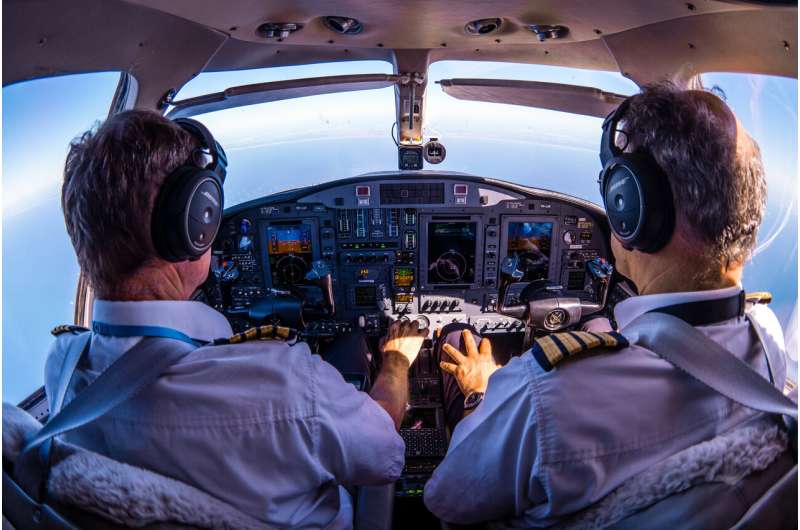Credit: European Space Agency
Commercial flight trials that use satellite-enabled communications to reduce the environmental impact of flying are scheduled to commence once normal traffic levels resume.
As nations begin to recover from the coronavirus pandemic and airports start to reopen in Europe, satellite communications provider Inmarsat and consultancy firm CGI will be conducting real-world trials of the Iris air traffic modernisation programme developed with ESA.
Some 20 aircraft flying commercially will be equipped with the technology.
Fitting aircraft with Iris satellite data communication technology enables air traffic controllers to manage the skies more efficiently through data communications, which are delivered through a high bandwidth, cost effective satellite datalink between the aircraft and air traffic management.
Flight plans can be continually updated during the flight to maintain an optimal trajectory towards the destination, minimising the fuel burned and the carbon dioxide emitted. Satellite communications also reduce the pressure on ground-based frequencies.
The trials will begin as soon as normal traffic levels start to resume.
Several national air traffic control organisations have already agreed to trial the commercial system, including those of Belgium, France, Germany, Italy, Luxembourg, the Netherlands, Portugal, Spain, Switzerland and the UK.
Shaun Stretton, Vice President of Satellite Communications and Space Data Platforms at CGI, said: "This is a significant step for the Iris programme towards transforming aircraft communications across Europe."
Jerome Soumagne, Vice President of Networks at Inmarsat, said: "Flying the Iris technology marks a key milestone for this important programme and brings us closer to the realisation of modernised air traffic management across Europe. We are pleased to partner with key technology providers to deliver this ground-breaking, secure and reliable data link, which will enable more efficient and environmentally friendly flights."
Emily Gravestock, Head of Applications Strategy at the UK Space Agency, said: "Iris is a great example of the potential for satellite applications to bring real benefits to industry and people's lives, by cutting carbon emissions and modernising air traffic management. The UK is the leading investor in ESA's telecommunications and applications programme, which supports our growing space sector and world-class companies."
Antonio Garutti, Head of Telecommunication Systems Project Office at ESA, said: "Iris is reaching deployment maturity as we approach commercial availability. ESA is very proud to continuously contribute to the evolution of this process and to the digitalisation of our skies, which we hope will lead to a greener environment, a better passenger experience, and a more competitive European economy."
Provided by European Space Agency























